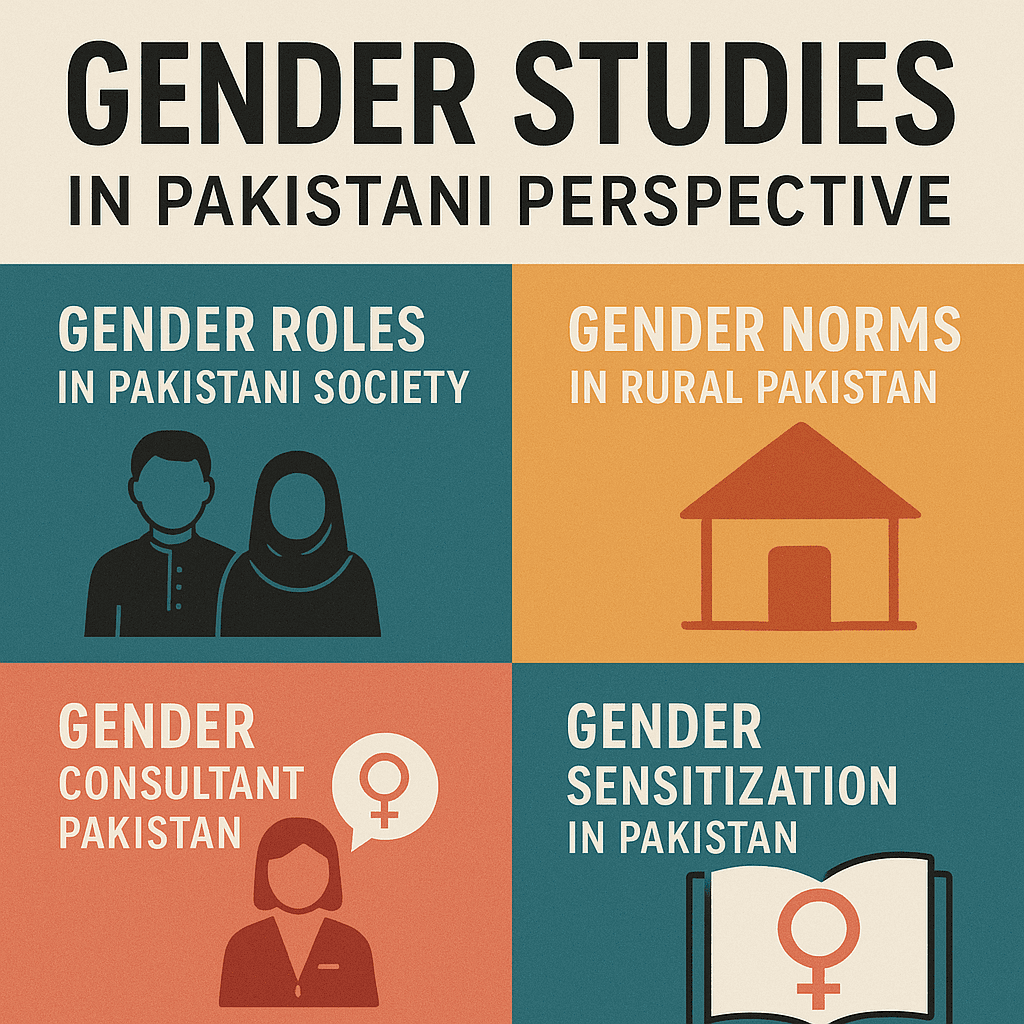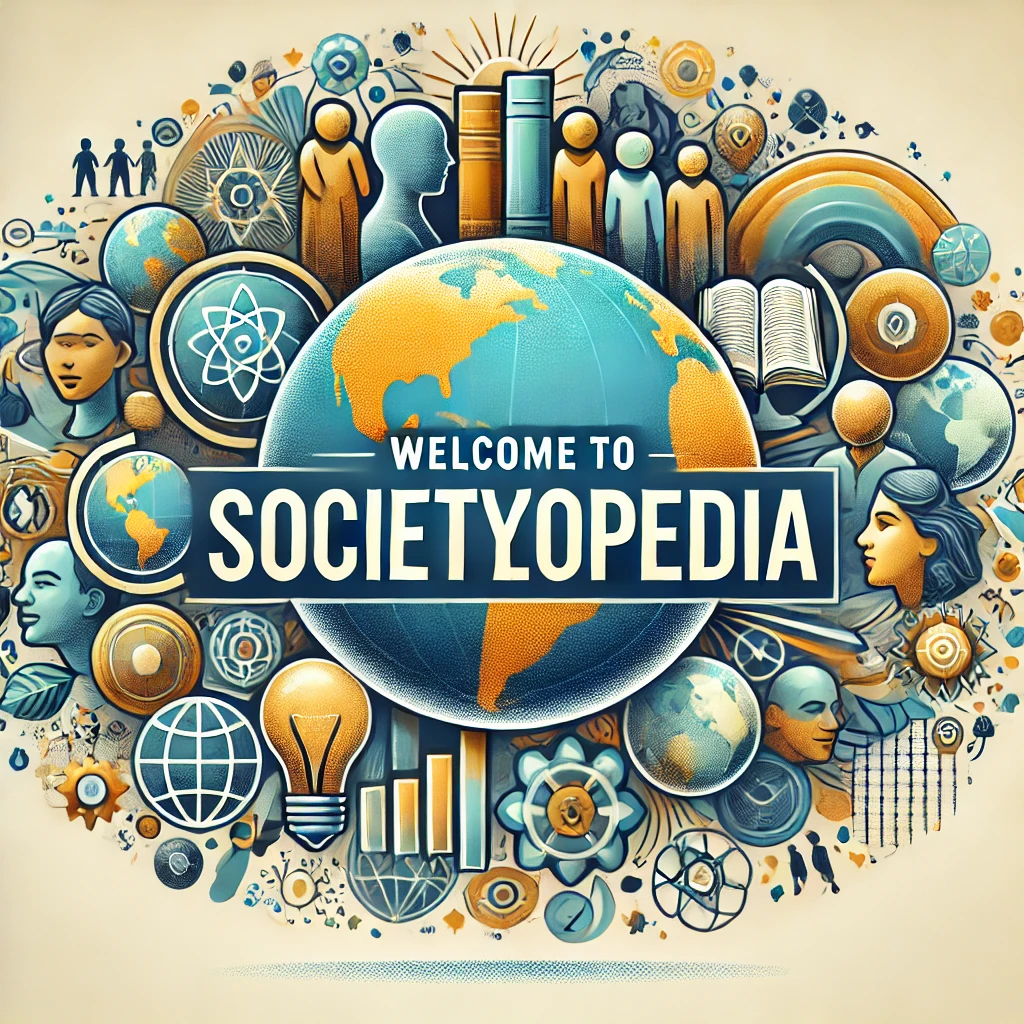Gender studies in Pakistan has evolved significantly over the past few decades, shaped by the country’s diverse cultural landscape, shifting political priorities, and ongoing struggles for social justice. Although rooted in global feminist discourse, gender studies in Pakistan has developed their own identity—reflecting local histories, religious values, power dynamics, and everyday experiences of women, men, and gender-diverse communities. As more academics, activists, and development practitioners engage with gender issues, the field has become central to policymaking, education, and community-based advocacy. Understanding gender within the Pakistani context requires exploring gender roles, rural norms, professional gender consultancy, sensitization efforts, feminist movements, and the landscape of research grants that support this work.
Gender Roles in Pakistani Society
Gender roles in Pakistan are deeply embedded in historical traditions, religious interpretations, and cultural expectations. While these roles differ by ethnicity, class, and region, the overarching structure remains patriarchal—with men typically positioned as authority figures and economic providers, and women associated with homemaking, caregiving, and social obedience.
From early childhood, boys and girls receive distinct messages about what is considered “appropriate.” Boys often face expectations of strength, leadership, and financial responsibility, while girls are encouraged to display modesty, nurturance, and adherence to familial rules. These roles are reinforced through family socialization, schooling practices, media representations, and even state policies.
However, the picture is not uniform. Urban, educated families increasingly support female employment, entrepreneurship, and decision-making. Women’s higher participation in universities, media, politics, and civil society is reshaping traditional gender expectations. Yet, strong resistance persists in many communities, especially where patriarchal authority and honor-based norms remain dominant.
Gender Norms in Rural Pakistan
Rural Pakistan has some of the most rigid gender norms in the region. Here, traditions, tribal customs, and kinship systems strongly dictate individual behavior. Women’s mobility is often restricted, and activities outside the home may require permission or male accompaniment. Decision-making typically rests with male elders, and cultural practices such as early marriage, dowry expectations, and division of labor reflect long-standing gender hierarchies.
Agricultural livelihoods also shape gendered expectations. Women contribute significantly to farming, livestock management, and household labor, yet their work is often unpaid and unrecognized. Land ownership remains overwhelmingly male, limiting women’s bargaining power and economic autonomy.
Despite these challenges, rural Pakistan is not static. NGO-led interventions, government programs, and microfinance initiatives are helping women gain financial skills, literacy, and entrepreneurship opportunities. Female health workers, teachers, and social mobilizers often serve as catalysts for change—challenging norms while working within cultural boundaries.
Gender Consultant Pakistan
The role of a gender consultant has become increasingly important in Pakistan’s development, humanitarian, and corporate sectors. As donor agencies, NGOs, and government departments integrate gender mainstreaming into their projects, the demand for specialized expertise has grown.
Gender consultants in Pakistan are typically responsible for:
-
Conducting gender analysis and needs assessments
-
Designing gender-sensitive programs
-
Evaluating project impact on different gender groups
-
Training staff on gender equality, harassment policies, and inclusion
-
Developing organizational gender strategies and safeguarding protocols
This profession bridges theory and practice, turning academic knowledge into tools for social transformation. Consultants also play a crucial role in policy formulation, ensuring that national development plans align with global commitments such as the Sustainable Development Goals (SDGs), especially SDG 5: Gender Equality.
Increasingly, corporations are also hiring gender specialists to create safer workplaces, support women’s career advancement, and comply with national anti-harassment laws.
Gender Sensitization in Pakistan
Gender sensitization has become a key strategy for combating discrimination and promoting equality. It refers to the process of increasing awareness about gender biases, challenging stereotypes, and encouraging more equitable attitudes and behaviors.
In Pakistan, gender sensitization takes place across multiple sectors:
1. Educational Institutions
Schools and universities conduct seminars, workshops, and courses that address gender stereotypes, consent education, bullying, and women’s rights.
2. Government Departments
Police, judiciary, and administrative staff increasingly undergo training on gender-responsive practices, especially in cases involving domestic violence, harassment, and family disputes.
3. NGOs and Development Programs
Community sessions, media campaigns, and men-engagement initiatives encourage reflection on harmful norms and promote healthier models of masculinity.
4. Workplaces
Organizations provide training under the Protection Against Harassment of Women at the Workplace Act (2010) to ensure compliance and establish internal inquiry committees.
While gender sensitization efforts are expanding, challenges remain. Resistance from conservative groups, lack of trained facilitators, and limited funding hinder the long-term impact of these programs.
Feminism in Pakistan
Feminism in Pakistan is diverse, dynamic, and deeply rooted in the country’s sociopolitical history. Contrary to stereotypes, Pakistani feminism is not an import; it has evolved organically through local struggles for justice, dignity, and rights.
Historical Roots
Women played active roles in the independence movement, the Bhutto-era reforms, and resistance against General Zia-ul-Haq’s discriminatory laws. Organizations such as the Women’s Action Forum (WAF) have been crucial in mobilizing against gender-based injustices.
Contemporary Movements
Modern feminist activism includes:
-
Aurat March, which has sparked nationwide debate about women’s rights
-
Advocacy against honor killings, child marriage, and gender-based violence
-
Campaigns for workplace safety and reproductive rights
-
Intersectional activism involving transgender rights, disability rights, and minority women’s concerns
Social media has amplified feminist voices, enabling young Pakistanis to discuss issues previously considered taboo. Yet, feminism continues to face backlash from conservative segments who view gender equality as a challenge to cultural values.
Research Grants for Gender Studies in Pakistan
Funding is a critical component for expanding gender research and supporting evidence-based policymaking. In Pakistan, gender studies scholars and practitioners can access research grants from various sources:
1. Higher Education Commission (HEC)
HEC offers grants for academic research, conferences, and PhD-level studies. Gender-related proposals often fall under social sciences, education, or public policy categories.
2. International Donor Agencies
Organizations such as UN Women, UNICEF, USAID, DFID/FCDO, and the World Bank regularly fund gender-focused research on topics like:
-
Violence against women
-
Women’s economic empowerment
-
Girls’ education
-
Gender and climate resilience
-
Gender roles in conflict zones
3. Local NGOs and Research Institutes
Institutions like the Aurat Foundation, Shirkat Gah, and ASR Resource Centre support localized research that informs advocacy and parliamentary reforms.
4. Corporate Sector and CSR Programs
Some private companies fund gender projects—especially those focusing on women’s entrepreneurship, digital literacy, and workplace inclusion.
Despite these opportunities, researchers often face challenges such as bureaucratic hurdles, limited institutional support, and political sensitivities around gender-related topics.
Conclusion
Gender studies in Pakistan is a rapidly growing field shaped by the country’s cultural diversity, social challenges, and ongoing efforts toward equality. Whether examining traditional gender roles, rural norms, feminist movements, or the work of gender consultants, the Pakistani perspective reveals a landscape where progress and resistance coexist.
From classrooms to community programs, from policymaking to scholarly research, gender studies provides essential tools for questioning harmful norms and promoting a more inclusive society. Although challenges remain—especially in rural areas and conservative settings—the increasing availability of research grants, sensitization initiatives, and professional expertise demonstrates that Pakistan is steadily moving toward a more gender-aware future.
References
-
Bari, F. (2010). Gender and Social Exclusion in Pakistan. SDPI.
Link: https://sdpi.org/publications/gender-and-social-exclusion-in-pakistan/ -
Mumtaz, S., & Shaheed, F. (1987). Women of Pakistan: Two Steps Forward, One Step Back? Vanguard Books.
Link (book information): https://vanguardbooks.com/book/women-of-pakistan-two-steps-forward-one-step-back/


